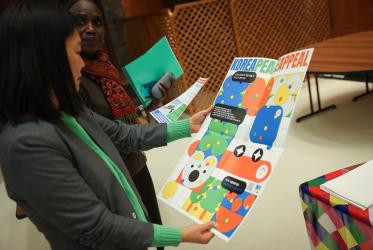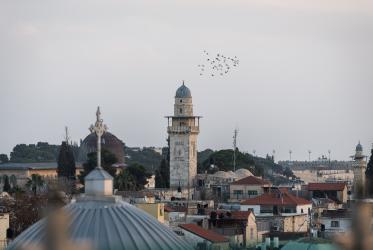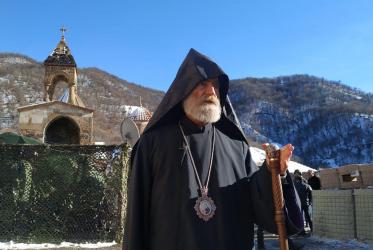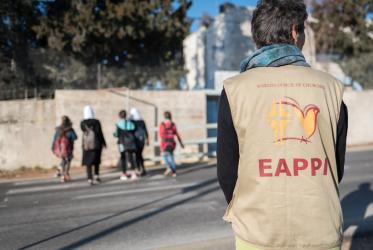Displaying 1 - 20 of 90
07 December 2023
WCC marks 75th commemoration of “Al-Nakba”
16 May 2023
WCC offers input to the UN New Agenda for Peace
13 April 2023
WCC honoured with Geneva Engage Award
01 February 2022
South Sudan Church leaders welcome new cabinet
15 March 2020
Dr Saïd Ailabouni: God is on the side of rejected, oppressed, occupied
12 September 2019
Peacemakers at work in Sri Lanka
29 April 2019
Human fraternity is a divine calling, says WCC general secretary
03 February 2019
Fr Alexi - a peacemaker in Syria
21 December 2018
A moment in ‘Time’: an interreligious vision in Erlangen
20 December 2018













